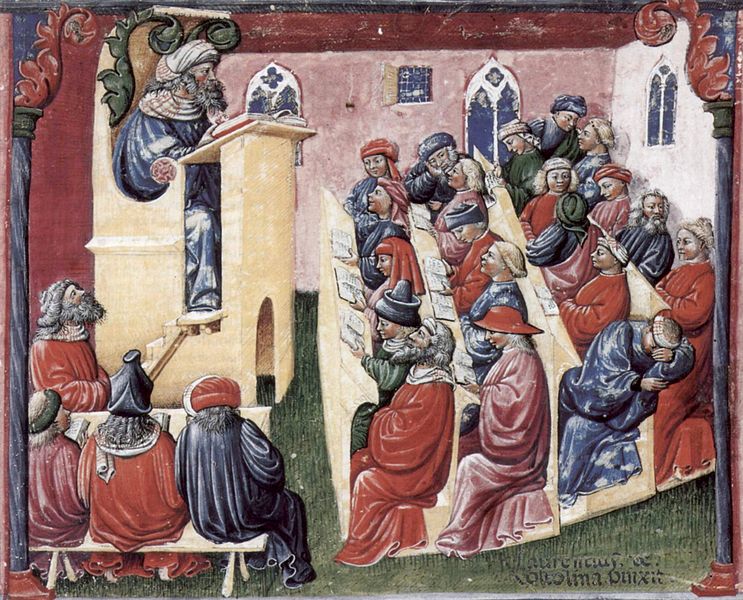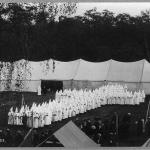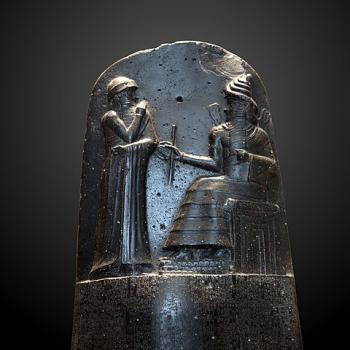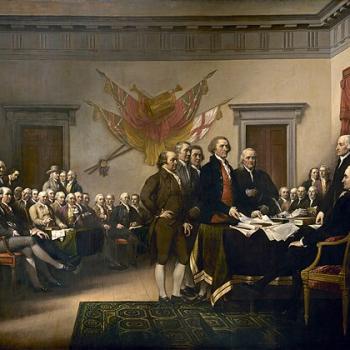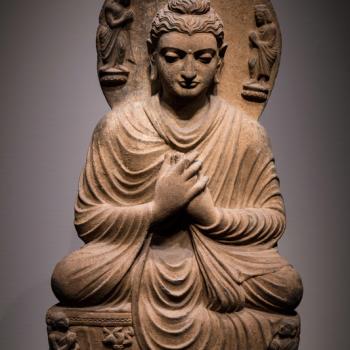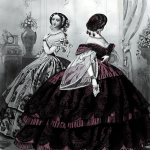Watch out for presentism in religious history. “Presentism” in history is judging the past by the standards of the present. Presentism is criticizing historical figures and events in the light of current knowledge and moral values. It can also refer to cherry picking history to make points about current issues. Presentism gets in the way of understanding history objectively, historians say, although they often disagree about what precisely constitutes presentism. Also, I suspect that presentism alone isn’t the problem. It depends on what you do with it.
Some of the presentism we run into in religious history is the same as in general history. For example, Martin Luther was one of the most significant people of Christian history. His ideas formed much of the foundation of all Protestantism and Evangelicalism that came after. He was also a terrible anti-Semite. I understand he grew even more hostile to Jews as he got older. What do we do with that information? I’ve witnessed discussions of Luther in which somebody thought we should no longer pay attention to Luther because of his hatred of Jews. But this both denies Luther’s huge influence on history as well as the pervasive anti-Semitism of his culture. In the 16th century you might have had a hard time finding any European Christian who wasn’t an anti-Semite.
This is similar to the problem of, say, Americans who have to reconcile that some of the greats of U.S. history, like George Washington, were slave owners. Do we dismiss Luther and Washington and stop learning about them? Do we ignore the things about them that are less admirable? Or do we reflect on the pernicious influence of bigotry in their cultures that caused otherwise thoughtful men to hold bigoted views?
Presentism Versus Scriptures
Most of the world’s scriptures were written many centuries ago by people facing particular personal, political and social problems we may know nothing about. They were also people with their own biases and cultural assumptions that were very alien to ours. Reading centuries-old texts with no appreciation of the historical and cultural context in which they were written can lead to a lot of, um, creative reinterpretations. For example, a passage about being under siege by Assyrians in the 8th century BCE might be interpreted by the historically ignorant as advising us to build fallout shelters and stock up on canned goods today.
People reading scripture often see what they want to see, of course. I recommend this article by author Noel Rae titled How Christian Slaveholders Used the Bible to Justify Slavery. Antebellum slave owners in the U.S. were so eager to believe the Bible justified slave owning they saw some things in scripture that just plain weren’t there. It’s also the case that a lot of the Old Testament reached its current form during the Iron Age. Iron Age culture was enormously different from ours. Slavery was just part of the way things were back then. Reasoning that “If it was okay in the Iron Age, it’s okay now” is kind of reverse presentism (pastism?). Some of us would like to think that civilization has advanced a bit since then, thanks much.
It’s also the case that a certain amount of “presentism” from the past is baked into much of the world’s scriptures. Many venerated texts have been edited and re-edited over the centuries, in part to make them more relevant to the times the editors’ lived in. As far as moral values are concerned, it appears there was a big shift in the middle of the 1st millennium BCE (see “What Was the Axial Age?“) that impacted most of today’s major religions. Before the shift, scriptures issued warnings that you’d better obey the gods or your harvests will be eaten by locusts. After the shift there was more emphasis on compassion, charity, and the Golden Rule (which emerged spontaneously in several different places ca. 500 BCE). Maybe we need to continue to evolve.
When Isn’t It “Presentism”?
That said, I also suspect all history throughout the history of history, religious and otherwise, has reflected historians’ values and agendas, to some extent or another. That’s probably unavoidable. We’re all conditioned by the cultures we live in. We’re all taught from birth to sort reality in our heads a certain way, and to judge this important and that not important. This is how we ended up with centuries of history books that focused exclusively on the exploits of Great White Men. It’s extremely rare for us to recognize our own conditioning as conditioning; we think it’s just the way things are.
But in the case of religious history, the problem may be even more acute. Important persons of religious history are not just heroic. Some of us like to think that God was speaking to them, or that they had realized enlightenment beyond our understanding. How we deal with their mistakes and flaws may depend on our chosen tradition. I recommend approaching religious history with humility. Who among us has perfect understanding? Who among us always gets it right? Our distant descendants may judge us all to be wackjobs, you know.
